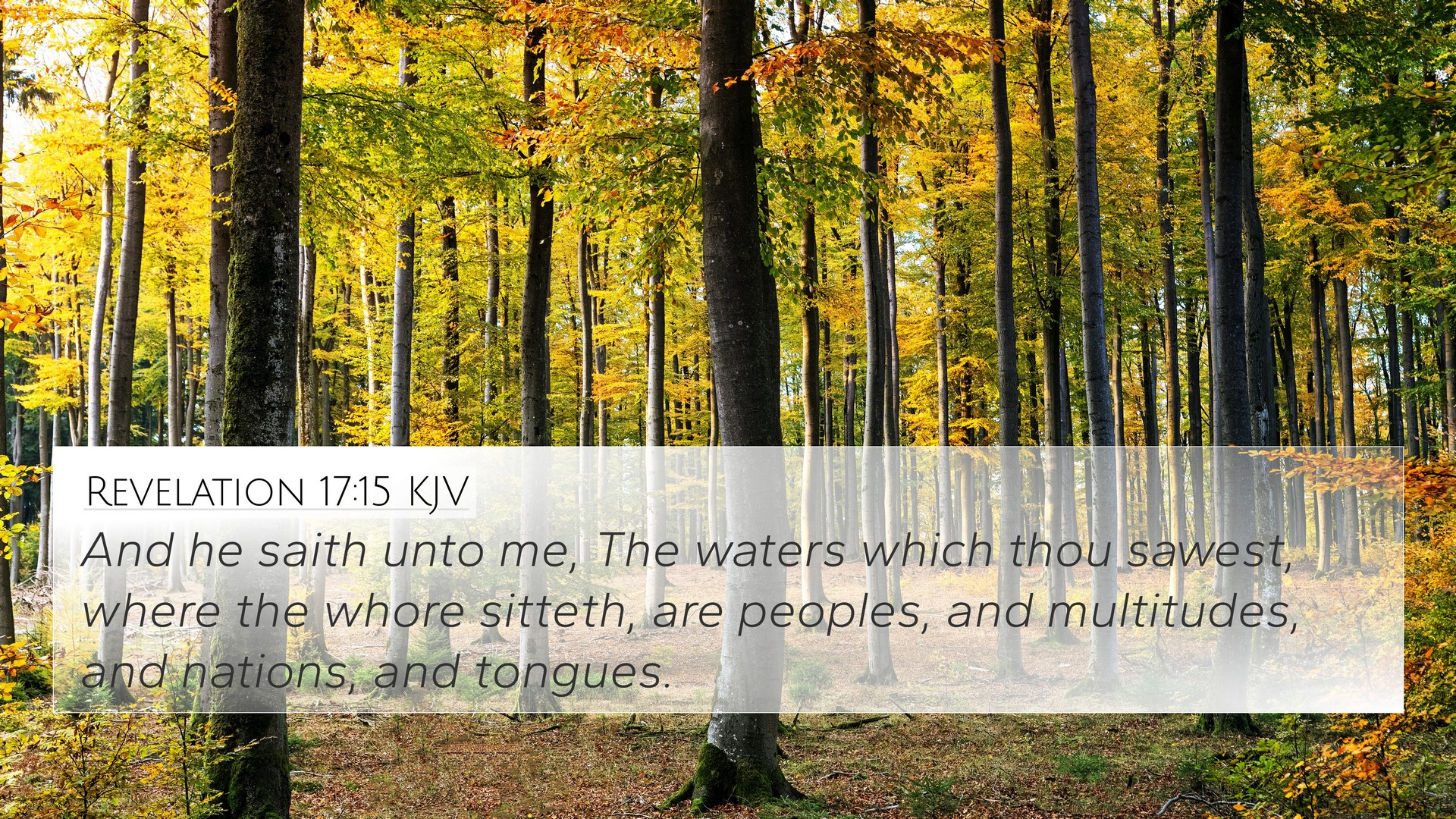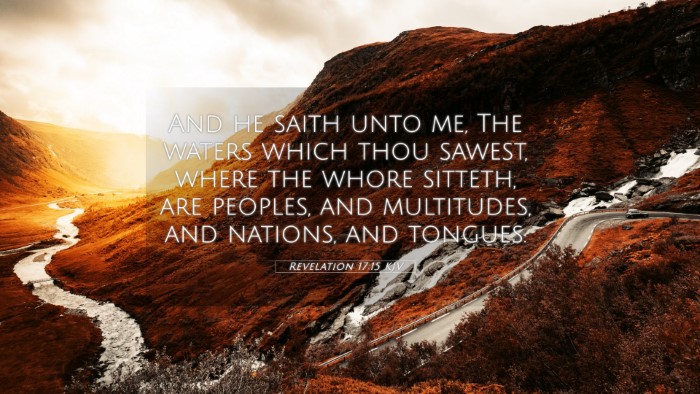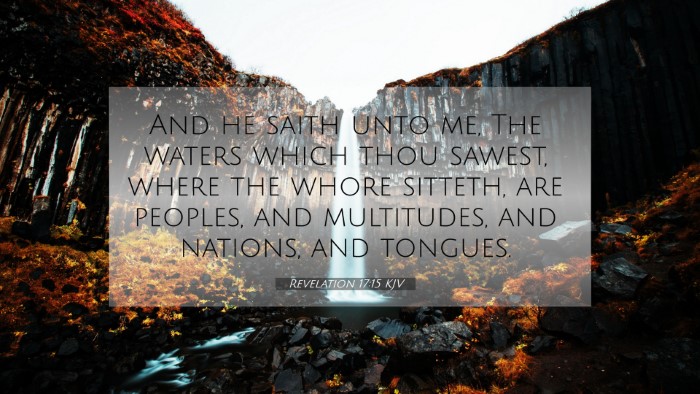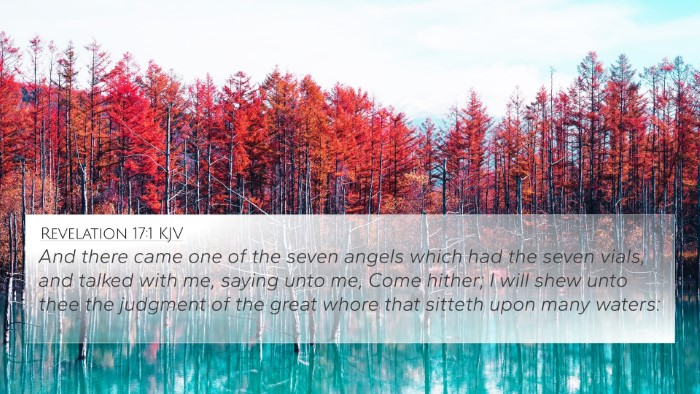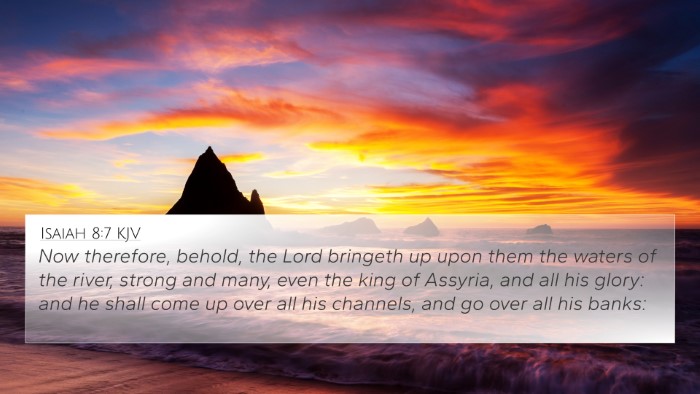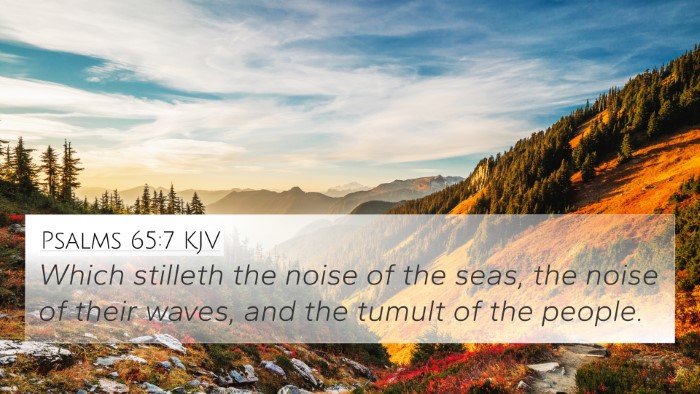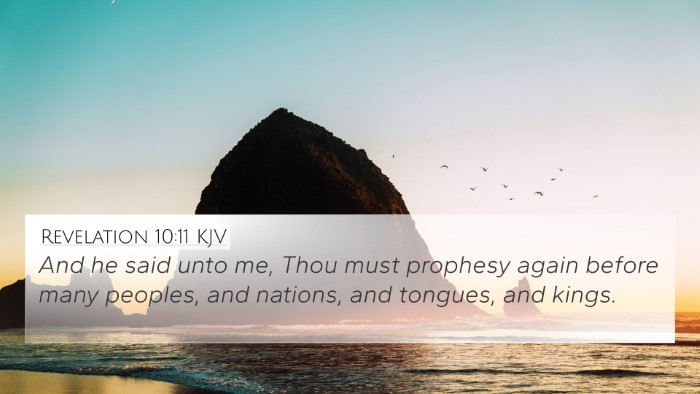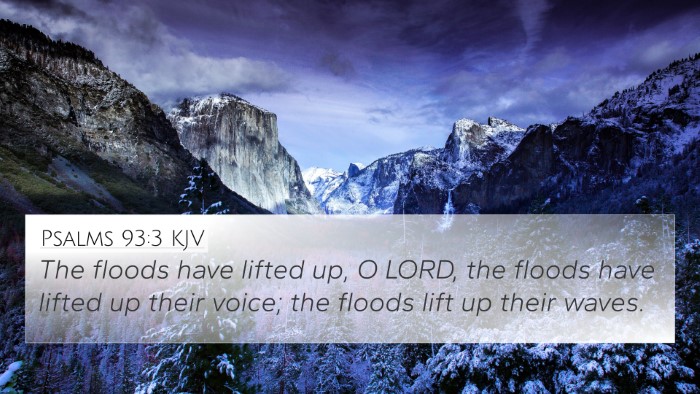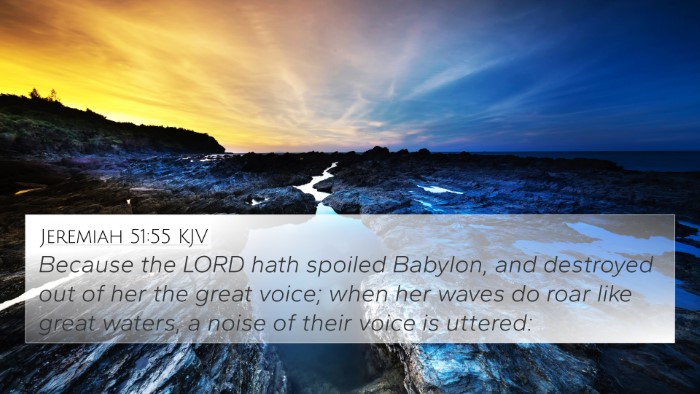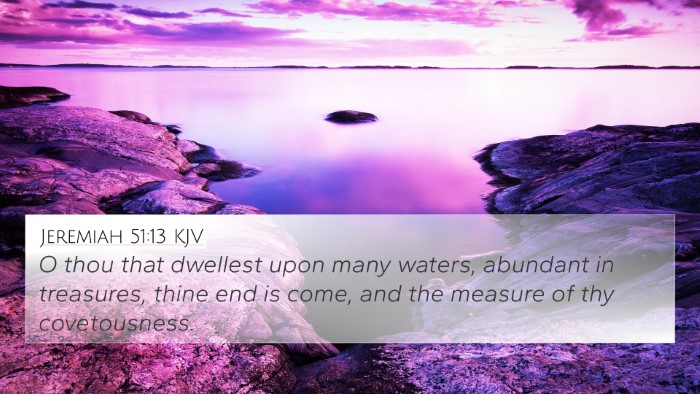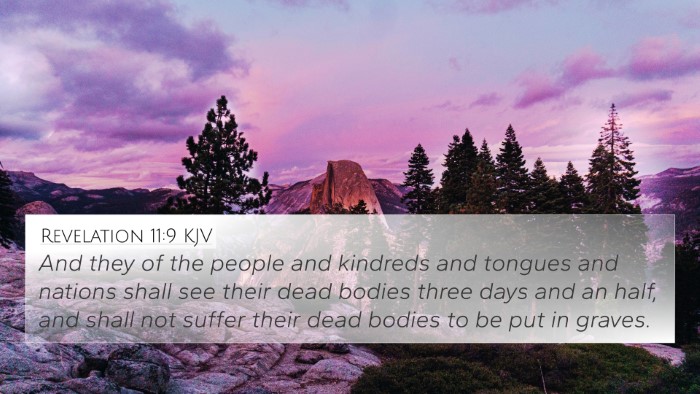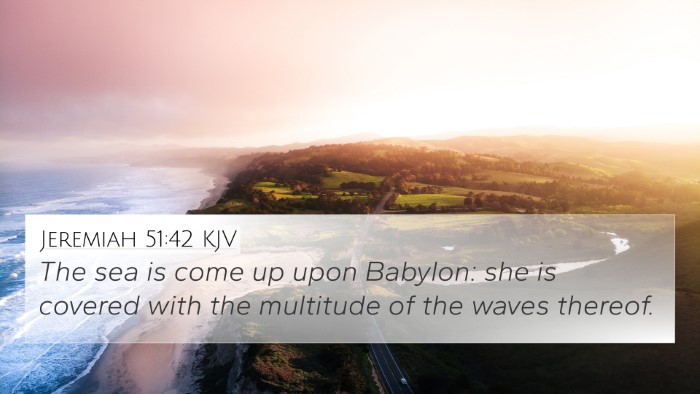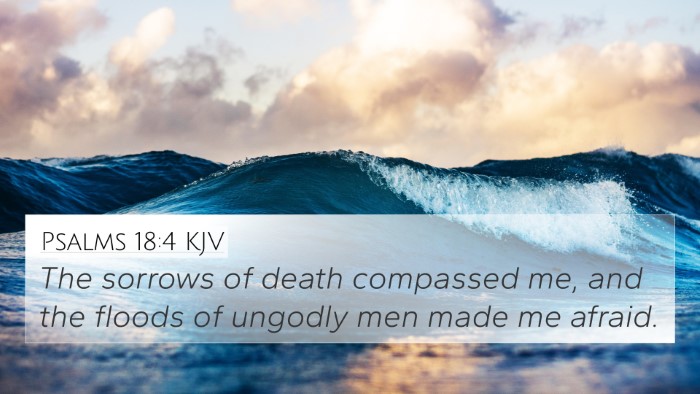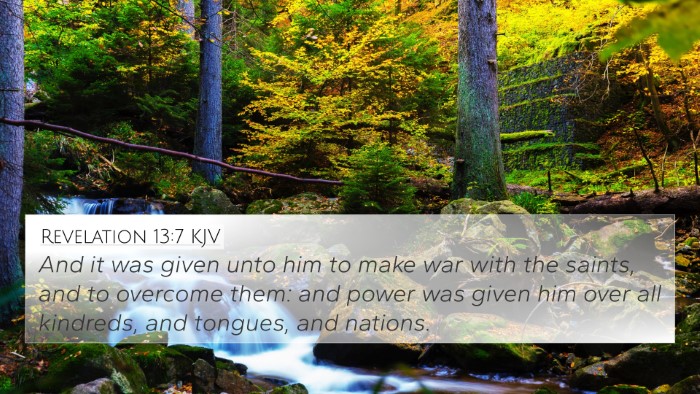Understanding Revelation 17:15
The verse Revelation 17:15 states:
"And he said unto me, The waters which thou sawest, where the whore sitteth, are peoples, and multitudes, and nations, and tongues."
This verse is pivotal in the apocalyptic vision presented in the Book of Revelation. Below is a detailed analysis combining insights from public domain commentaries by Matthew Henry, Albert Barnes, and Adam Clarke.
Contextual Analysis
The context of Revelation 17 involves Symbolism, prophecy, and the ultimate fall of Babylon, representing false religion and corruption. In this verse, John, the author, receives explanation regarding the imagery he has witnessed. The "whore" symbolizes the corrupt and idolatrous systems that lead people away from the truth.
Meaning of "Waters"
The waters where the whore sits represents the vast populations of the world. Here, the commentaries highlight several important aspects:
- Common Interpretation: The waters are identified as "peoples, and multitudes, and nations, and tongues," indicating the global influence of this corrupt system.
- Impact of Corruption: This corrupt entity has sway over diverse groups, as suggested by the multitude of tongues, indicating cultural and political power over humanity.
- Connection to Old Testament: In several instances within the Bible, water symbolizes nations or peoples (see Isaiah 17:12-13; Jeremiah 51:13).
Thematic Connections
When exploring Revelation 17:15, it is essential to note the following thematic connections:
- Corruption and Idolatry: The "whore" represents spiritual unfaithfulness, paralleling themes in Jeremiah 2:20 and Ezekiel 16, where Israel's unfaithfulness is metaphorically described as adultery.
- Power Dynamics: The imagery presents a stark contrast between God’s sovereignty and man's inclination toward rebellion and false worship.
- End Times Prophecy: Revelation speaks about the eventual judgment on this corrupt system and offers hope to the faithful (Revelation 18:2).
Cross References
Here are key Bible verses that relate to Revelation 17:15, illustrating the connections between various biblical texts:
- Isaiah 17:12-13: "Woe to the multitude of many people..."—supports the idea of global powers.
- Jeremiah 51:13: "O thou that dwellest upon many waters..."—linking the concept of waters to nations.
- Ezekiel 16:15: "But thou didest trust in thine own beauty..."—reflects spiritual infidelity.
- Revelation 18:2: "And he cried mightily with a strong voice..."—reinforces the theme of judgment on Babylon.
- Daniel 7:3: "And four great beasts came up from the sea..."—symbolism of nations arising from water.
- Matthew 28:19: "Go ye therefore, and teach all nations..."—contrasting the corrupt influence with the gospel mandate.
- 1 Peter 5:8: "Be sober, be vigilant..."—reminds believers to be aware of spiritual deception.
Comparative Analysis
This verse invites a comparative analysis of different scriptures to reveal deeper meanings:
- Symbolism of Water: Compare with Exodus 15:22-25, where water represents trials and testing.
- Judgments from God: Look at the plagues in Egypt (Exodus 7:14-25) where water transformed into blood signifies divine judgment.
- Judaism's view on Nations: Reflects on the multiple nations arising from the lineage of Abraham (Genesis 17:4-5).
Conclusion
Revelation 17:15 serves as a powerful reminder of the intricate web of spiritual truths embedded throughout the Bible. It challenges readers to consider their standing amidst the multitude of influences present in the world. By engaging in cross-referencing biblical texts, believers can gain a richer understanding of the complex themes contained within Scripture.
To further explore themes and enhance one's study of similar verses, consider utilizing bible cross-reference guides or engaging in cross-reference Bible study methods for a thorough examination of God's Word. Biblical concordances and resources can serve as invaluable tools in identifying connections between diverse scriptures and themes.
